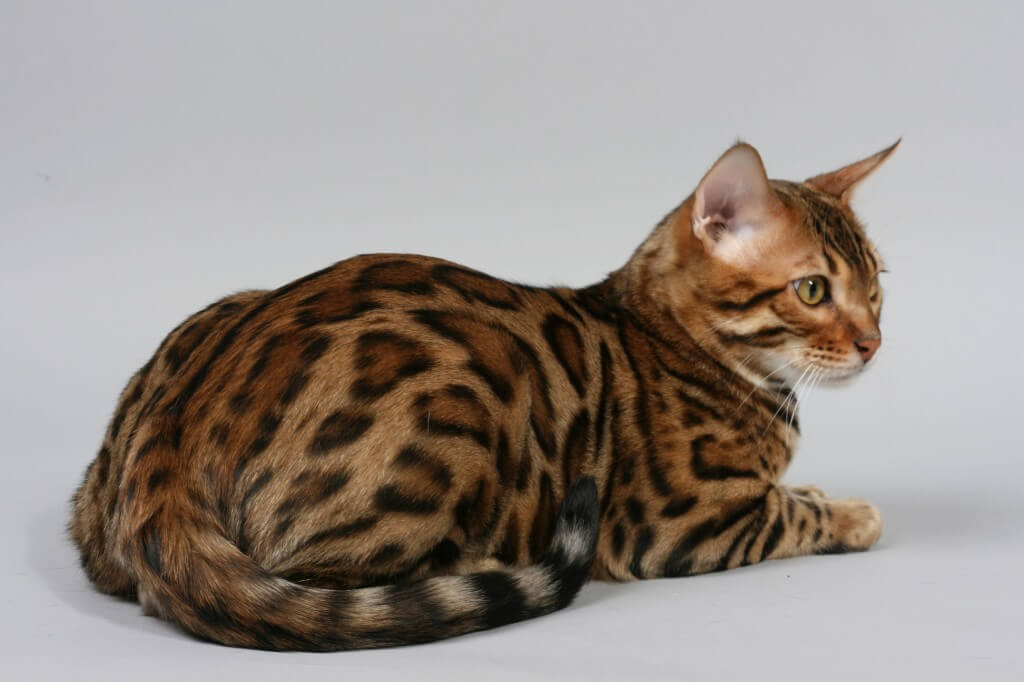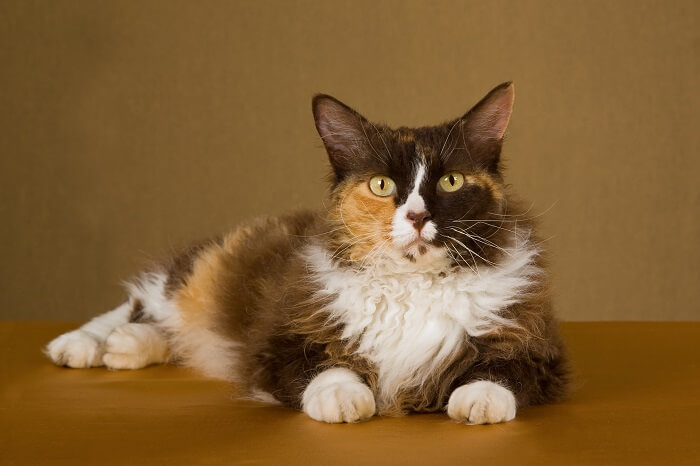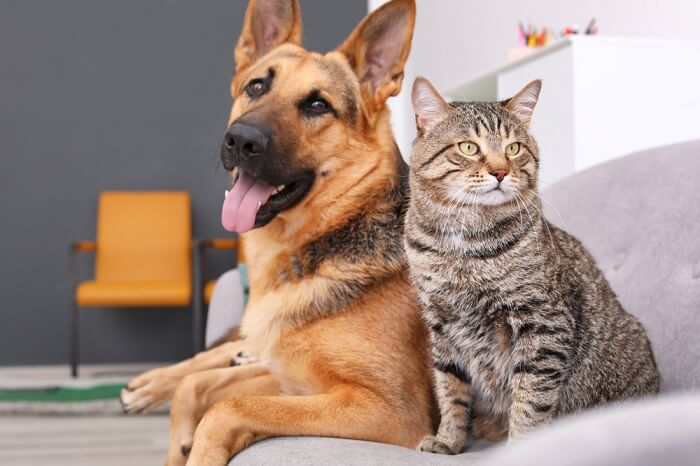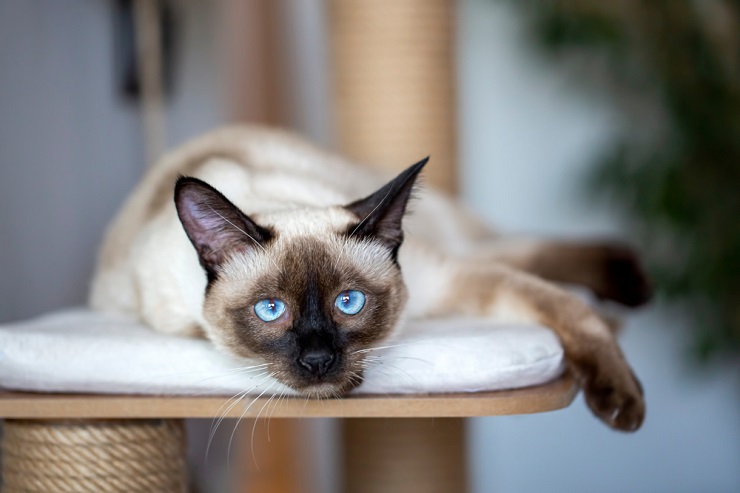The Bengal Cat Breed
This page contains affiliate links. We may earn money or products from the companies mentioned in this post through our independently chosen links, which earn us a commission. Learn More
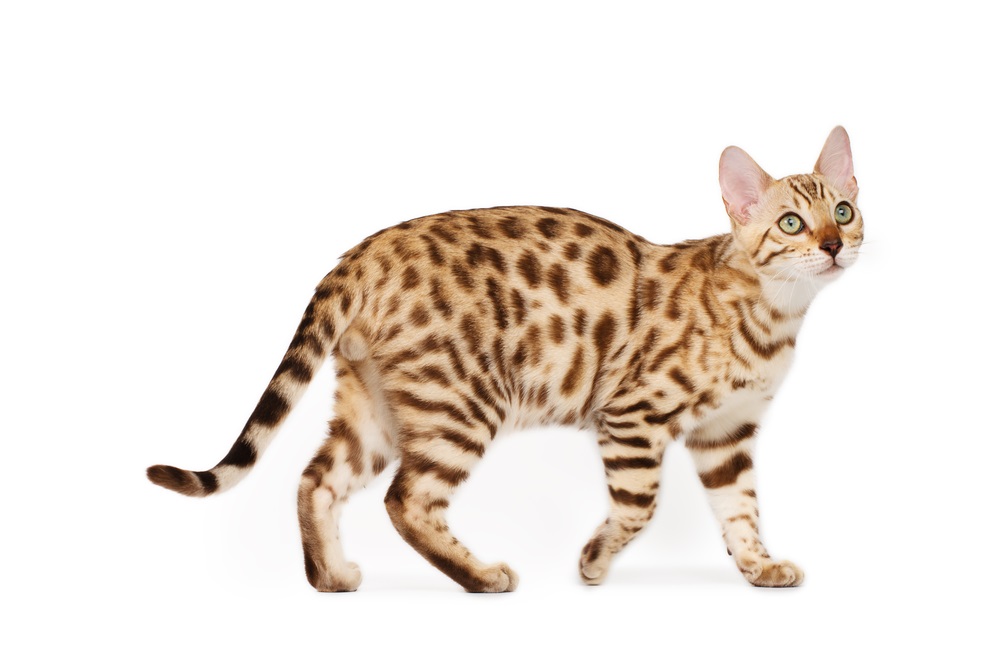
In 1963, Jean S. Mill (maiden name Sudgen) crossed a domestic cat with a nondomestic cat species from Asia called an Asian Leopard Cat.
This was the first effort to create a breed of domestic cat that had the beauty of wild cats such as leopards, cheetahs, ocelots and jaguars. Today’s Bengal cat breeds can be traced back to those bred by Mrs.
Mill in the early 1980’s. Bengals are now a recognized breed and are sold legally across the United States.
Appearance
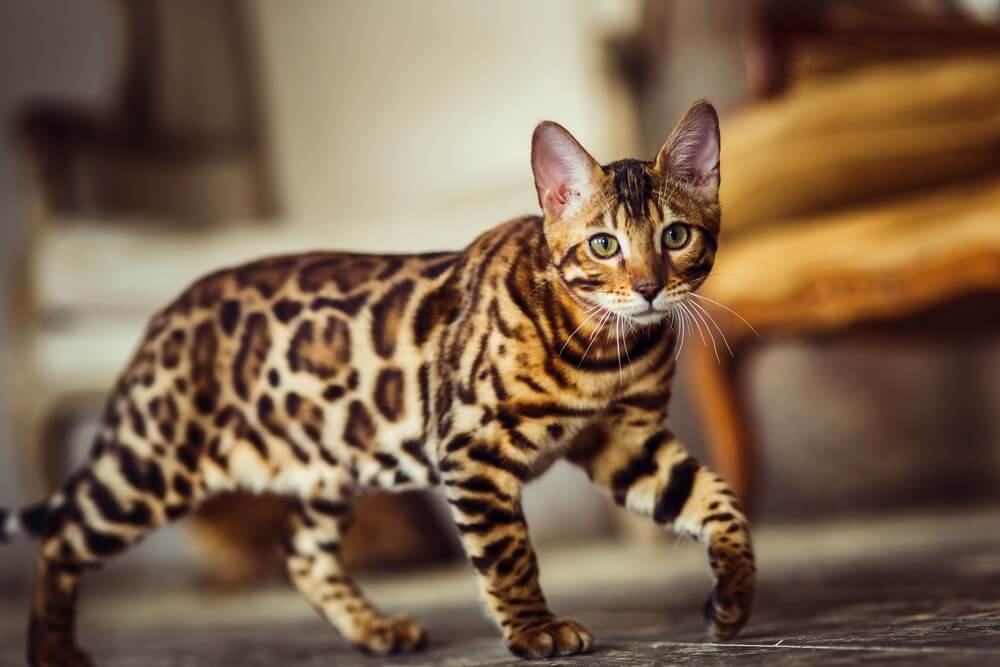
The Bengal cat has a long, muscular, build, with a broad head, high cheekbones and obvious whisker pads. Males weigh on average between 10 – 15 pounds and females 8 – 12 pounds.
The Bengal stands out among cats for its elegant, thick and very soft coat. The distinctive leopard-like spots on the Bengal cat can be random, horizontal striping with swirls that form a half circle or marbled pattern.
The choice colors are black or brown spotted and black or brown marbled, snow spotted (white) and snow marbled.
The eyes are round and wide, with dark markings around the eyes and color can be anything from a deep copper, minty green, vivid yellow or crystal blue. The ears small and rounded at the tips.
Personality
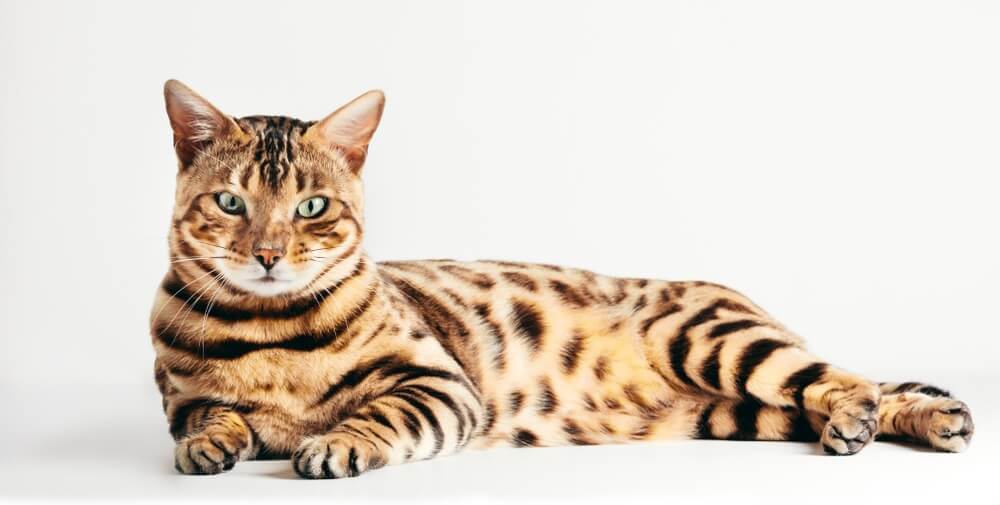
The Bengal cat are affectionate and show great loyalty to their owners. They have been known to get along with dogs and other cats but can be extremely territorial.
They are very intelligent cats who need a lot of interactive play toys and bore easily. Bengals are also very vocal and not easily ignored. They will meow as to demand food or fuss when the litter box needs to be cleaned.
Bengals love to climb and need a lot of vertical space to do so. They are also fond of playing water. Don’t be surprised if your Bengal is found playing in the toilet or turning on faucets.
Health
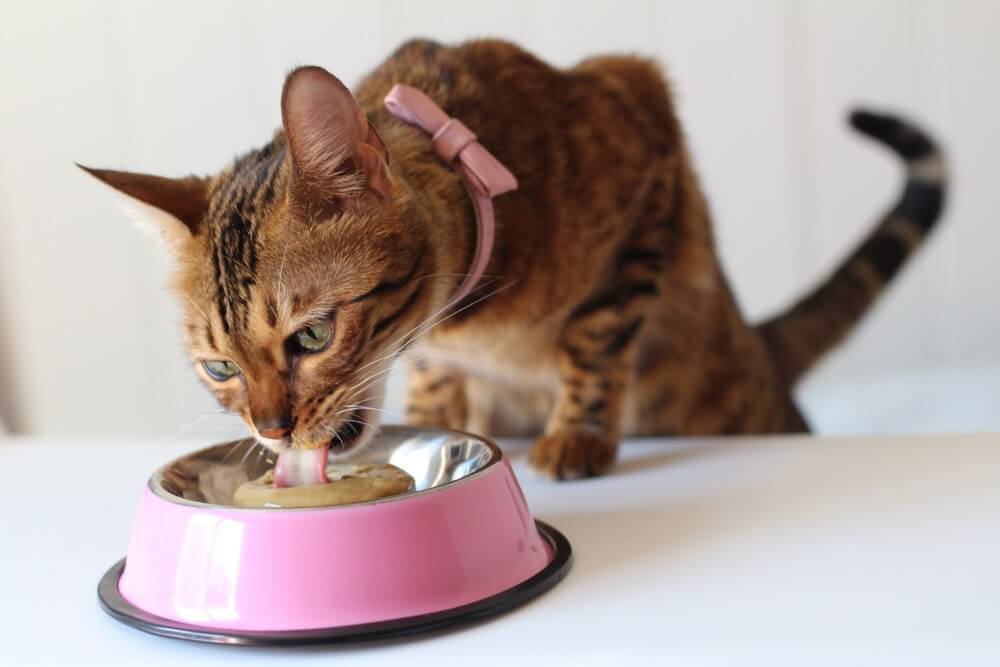
Bengals are generally very healthy cats with a life expectancy of 14 to 16 years. Like other pedigree breeds, they have a slightly higher risk of HCM (heart disease) and PkDef (chronic anemia).
Always choose a breeder who screens for these issues and offers a health guarantee on kittens.

